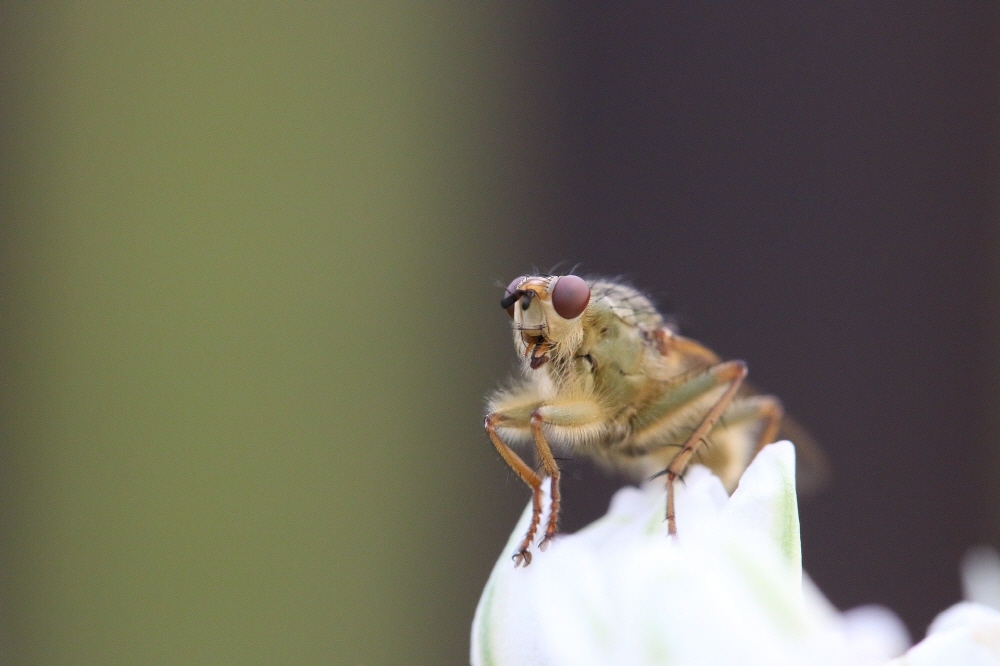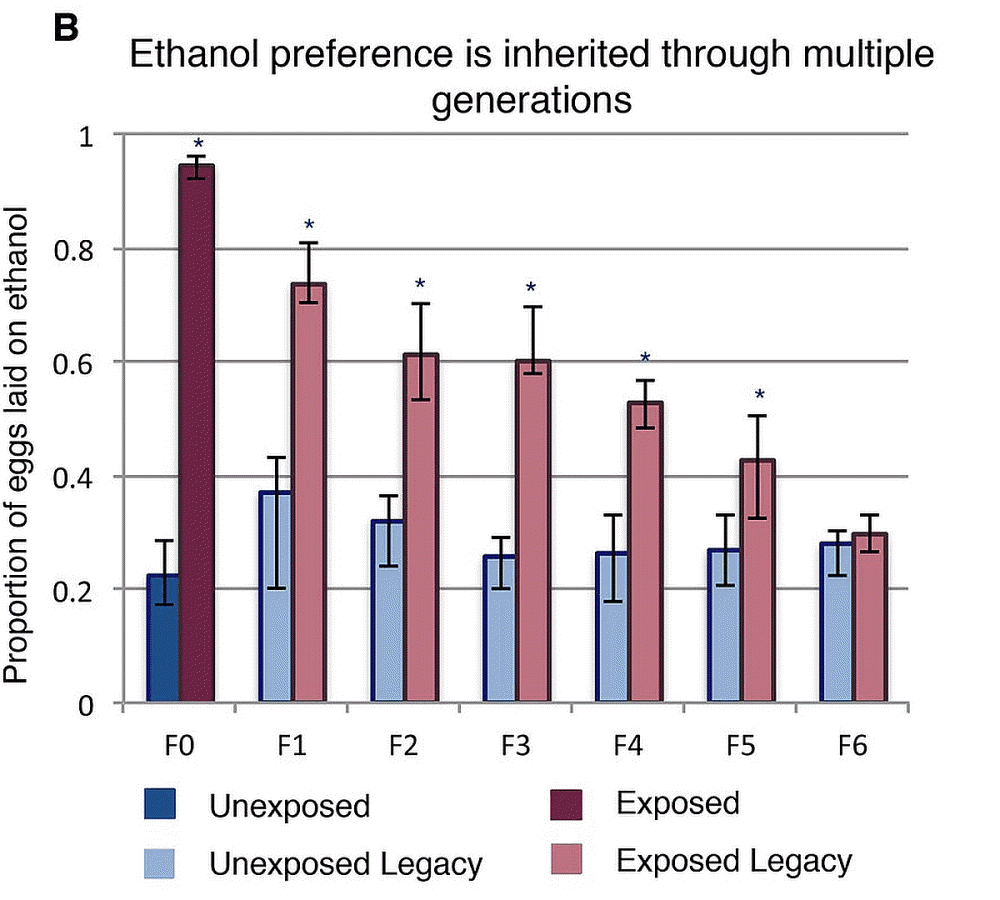
19th-century Austrian priest Gregor Johann Mendel discovered through pea breeding experiments that the shape and properties of living things were passed on to offspring. Since then, it has been known as an element that is inherited to the offspring in the form of genes. However, recently, the possibility of inheriting stress and memories of parents has been pointed out. In the meantime, a research team at Geisel Pharmacy University published experimental results showing that the experiences acquired by parents are also passed on to their children.
Yellow fruit flies tend to lay eggs around prey, including ethanol, when they detect the presence of parasitic bees that live in larvae. It is said that if the larva grows on food containing ethanol, it becomes difficult for the parasitic bee to take his life. The research team raised 40 female yellow fruit flies, 10 males, and 20 female parasitic bees, which will be the F0 generation for 4 days. At the same time, yellow fruit flies were reared without any contact with parasitic bees in the same number and ratio as a control.
As a result, in the F0 generation, 94% of the eggs added with the substrate containing ethanol reached 94% of the total, whereas in the control group without the threat of parasitic bees, 20% of the eggs added with the ethanol-containing substrate were. The research team then reared the F1 generation, born from the F0 generation eggs, without applying any parasitic bees. Then, 73% of the eggs laid by the F1 generation, who did not know the parasitic bees, gave birth to a substrate containing ethanol. This result is an explanation that it means that the F1 generation inherited the threat of parasitic bees experienced by the parents, the F0 generation.

The rate of laying substrate eggs containing ethanol does not exceed 40% even after generations in the control group, whereas the F0 generation lineage decreases with each generation, but up to the F4 generation, most of the eggs contain substrates containing ethane.
From this result, it is argued that the acquired trait, which is the ethanol palatability of spawning, is inherited, and this descendant also lays eggs containing ethanol. The research team also found that one of the factors that enhances the palatability of ethanol in the spawning of yellow fruit flies is the inhibition of the expression of a substance called neuropeptides F in specific areas of the fly’s brain.
The research team does not believe that the behaviors coded in nerves for the experimental motive are inherited from generation to generation. The results of this study are expected to be helpful not only in the biology and epigenetics of yellow fruit flies, but also in the investigation of basic mechanisms for the genetics of living things. Related information can be found here .

